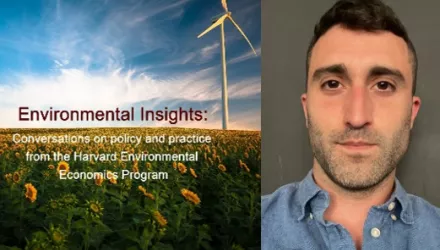The Challenges of Negotiating for Humanity in the XXI Century Study Group
Over the course of four sessions, a study group led by Harvard Advanced Leadership Initiative Fellow Elayne Whyte, Ambassador of Costa Rica to the United Nations (2014-2020) and Vice Minister of Foreign Affairs (2000-2002), will examine one of the most compelling challenges of diplomacy in the XXI century: how to negotiate effective and innovative agreements addressing the global problems facing humanity today that are of transnational nature and affect humanity as a whole, both current and future generations.
The readings and discussions of this study group will seek to identify the theoretical, ethical and political underpinnings of the concept “negotiating for humanity.” It will also review experiences of negotiating around global challenges that go beyond competing national interests, transcend boundaries, affect current and future generations alike and pertain to global commons. Furthermore, these challenges constitute problems that cannot be addressed by governments alone or by one single state or institution.
Whilst the practice of diplomatic negotiations was established to secure the interests of the nation-state, the interconnected and interdependent society of the XXI century demands policy responses that transcend the interests and capabilities of individual or groups of states to protect the global commons, generate global public goods and address humanity’s challenges.
Contemporary negotiations need to address global health, inequality, and the protection of our global natural commons (oceans, ozone layer, the planet’s biodiversity, among others) for current and future generations. There are also pressing demands to tackle the existential threats that climate change or weapons of mass destruction pose to human civilization. Increased cooperation is also required to face global health risks, ocean pollution, human rights challenges posed by emerging technologies or other problems of systemic nature, such as the shortcomings of the multilateral system
Reflecting this paradigm shift in 2015 the United Nations agreed upon an “agenda for people, planet and prosperity”: the Agenda for Sustainable Development. In 2021, the Secretary General presented a new deal to deliver global public goods and address humanity’s major risks, as part of the proposals to advance a common global agenda for the future. This represents a new comprehensive, systemic approach to the international agenda, in the context of the deep systemic impact brought about by the COVID-19 pandemic and the invasion of Ukraine.
Being able to identify approaches that can be used in negotiations for humanity, the study group seeks to contribute to emerging issues of global debate, such as human migration, inequality, ocean pollution, outer space navigation and cleanup of orbit debris, the human rights protection challenges stemming from emerging technologies or the creation of an effective regime to deal with pandemics.




